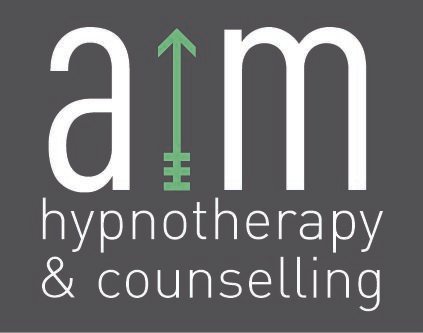Stress and Anxiety are now a normal part of our everyday vocabulary. Some of us suffer from it more than others, but regardless of how much we suffer from it, most of us wish we had less of it.
Although there can be many reasons for symptoms of anxiety, some physical, some emotional, some interpersonal, when we feel it, we often want relief as quickly as possible.
At Aim Counselling and Hypnotherapy, we see clients who experience various forms of stress and anxiety; and although every client is unique and our approach is tailored for each individual, there are a few simple things we can recommend between sessions that can be helpful for a great deal of people.
Here are a few strategies that can help next time you or a love one feels overwhelmed.
1.Exercise: You know it helps. You've been told a million times and although this can be a tricky one for those who don't see themselves as athletic, it's an old cliche for a reason. There is amble support for the positive effects of exercise on our emotional wellbeing. Exercise can be as simple as taking a walk around the block, boing for a bike ride, planning a weekly hike, a walk along the seawall or getting into a fitness program that works for you. Making sure to chose something that you enjoy and works for you is key, because even increasing exercise a little bit can be a big help with symptoms of anxiety.
2.Magnesium: There is some evidence for the effects of Magnesium on lovering symptoms of anxiety. It may be worth looking into or speaking to a doctor or dietician about incorporating into your daily vitamins.
3. Improving your nutrition and gut bacteria: Our moods are more connected to our guts than we ever imagined. There is research supporting these claims and if you are suffering from low mood or symptoms of anxiety it may be worth checking out whether your body is accurately nourished.
4. Distracting your senses: Music, Dancing, Aromatherapy, Relaxing and tensing your muscles. All there ways of stimulating your senses may be helpful if you are experiencing a bout of anxiety. Basically anything to get you out of your head and into your body,
5. Having a plan: Things are less scary when we have a plans and feel a sense of control. Consider writing out a plan of things to do or people to call next time you feel a sense of overwhelm. Being prepared can be very helpful for reducing anxious symptoms
6. Journalling: Writing out your thoughts may help you to feel a bit more grounded. Don't worry about what your writing or how it looks, jut write to get it all out. Giving yourself a moment to externalize your thoughts and to look at what is bothering you may help you organize and moderate your thoughts which may help calm you.
7. Mindfulness: Practicing mindfulness, relaxation,meditation, tapping or self hypnosis can all be very helpful for anyone suffering from stress or anxiety.
Lastly tuning into yourself and remembering you are a wonderfully unique and nuanced individual and that feelings are always shifting and flowing. Remind yourself of what has helped you cope in the past and that you are more capable than you may feel in that very moment.
At Aim Counselling and Hypnotherapy we help hundreds of clients find helpful coping strategies to manage and lower their symptoms of anxiety and stress. Seeking support can be a great relief and a step towards a fuller and happier life.



